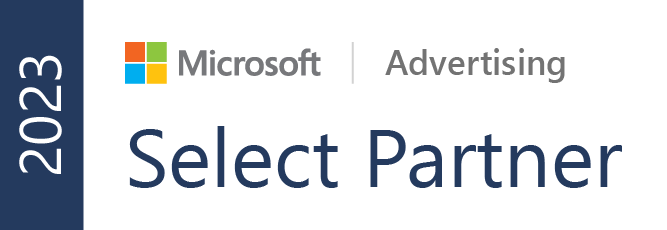What are our competitors doing that we aren’t?
It’s a question you likely ask yourself as a marketer. While, in many cases, following in the footsteps of competitors can be seen as unoriginal, or not innovative there is one area that you should always be worried about what your competition is doing.
Search.
There is a lot you can learn from analyzing competitive keywords, and conquesting them. Yes, we’re going to talk competitor conquesting on paid search today.
Here’s why: if you’re not worried about what your competition is ranking for…then you’re likely not ranking for it. It’s a missed opportunity, and worse it can lead to poor performance if your competition is worried about it and optimizing their campaigns to outbid your brand.
What is competitor conquesting in paid search?
Competitor conquesting means using competitive keywords strategies to outbid your competition on terms relating to their own brand. It requires that you understand the search intent of queries and how to serve content that applies to those queries in crafty ways.
Why would you want to conquest a competitor in search?
There are a few benefits to this strategy; for one, consumers are far less loyal than they once were. According to a survey by advertising platform, Criteo, out of 1,000 US-based consumers surveyed 3 out of 4 (73%) are willing to consider new brands for all shopping categories. With brand loyalty at a low, and competition and consumer options at a high, it’s essential to make your brand known against competitors.
What are competitor keywords you can target?
1. Bid on broad match competitive keywords
Bidding on broad match keywords, can at times be beneficial. For example, if you are in an industry where your competitors are not yet utilizing paid search then you may have a chance to bid on:
- You competitor’s brand name
- Your competitor’s product names
- General keywords pertaining to the competitor brand, or its products.
2. Bid on competitive research-related queries
You can maximize your chances of ranking over your competitors by providing helpful research-based content. Creating landing pages that review your product offerings vs the competition can help you target terms such as:
- Your competitor name + “reviews”
- Your competitor name + “case study”
- Your competitor name + your brand + comparison
If you feel that a user may be in their deciding stages of research with a competitor there are also ways to capture their attention away by targeting terms such as:
- Your competitor name + “sign up”
- Your competitor name + “register”
- Your competitor name + “contact us”
3. Bid on “intent to leave” keywords
What would searchers be looking for it they might leave your competitors offering, or don’t like what your competitors are offering?
Target keywords that may indicate that a searcher is interested in exploring other options, such as:
- Your competitor name + “alternative”
- “Companies like” + your competitor name
- Your competitor’s product + alternative
- “Similar to” + your competitor name
4. Bid on keywords that may indicate current usage
Want to get in from of customers of your competition? You may be able to find ways to target them based upon what they search for. For example:
- Your competitor name + “log in”
- Your competitor name + “sign in”
- Your competitor name + “dashboard”
- Your competitor name + “my account”

How to target competitor audiences
Here’s how to get started with researching how you can squash the competition.
- Use competitive research tools like Spyfu or SEMRush to see what keywords competitors are bidding on.
- Create affinity audiences. Affinity audiences are people who have been to or who are searching your competitor’s sites using display and/or video ads. Targeting competitor YouTube channels with your video ads allows you to show your ad before someone watches their video (perfect for when your competitor has a large audience and plays ads before their videos.)
What are some ways you can outperform your competition on their own keywords?
Landing Page Relevancy
Relevancy is the first key to success. Ensure that you’re not only directing searchers to generic content (your homepage, product page, or general lead form.) Instead, create competitive landing pages specific to the set of keywords’ search intent.

For example, above you can see a line by line comparison that Clio has put together in-depthly comparing their offerings with a competitor.
Ad Copy Relevancy
Ad copy is the second part of the equation. You need to put time and effort into writing ad copy that is: keyword optimized, searcher-friendly and attention-grabbing, and most importantly, tested and optimized. While you can’t use competitor names or product names in your ad itself, you can use it in the path field of the ad, and we recommend that for relevancy purposes.

For example, the above image showcases Zola’s use of competitive ad copy. They’re utilizing the competitor’s name in their path, and outranking the competition on their own keyword.
Focus on Quality
Quality score is essential; quality score is, according to Google, a culmination of “expected clickthrough rate, ad relevance, and landing page experience.” Focusing on optimizing all of those elements, and maximizing the relevance between page and ad copy is the way to go.
Competitive conquesting is all about staying one step ahead of search intent, not one step ahead of the competition. Understanding what your target audience might be looking for is key, and utilizing the above strategies will help you get started.
Still not sure where to start but, ready to kick ass targeting competitive keywords? Megethos’ 50-point audit has an established and tested system for uncovering competitive opportunities for your brand. Learn more about how to get yours, for free.

















